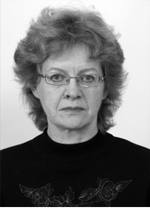Access to Higher Education Reflected in Public Opinion
The article characterizes the opinions prevailing in the society on equality of possibilities for acquiring education.
From the studies, it has become clear that the Estonian society does not have a single shared opinion on the existence of equal possibilities for acquiring higher education. Perception of the possibilities is in direct correlation with the social-economic status of the respondent, first of all his/her level of education: people with a lower level of education feel the inequality of access to higher education more acutely. In this way, we are very similar to many Central and East European countries. This situation has not developed purely because of the „socialist past”, but also due to the decisions made by the Republic of Estonia. Together with several other Central and East European states we are the opposites of the Nordic countries, where the general feeling of inequality in access to education is perceived much less, and so is the opinion that access to higher education depends on the size of the family’s income. In other words, akin to many Central and East European states (excluding Slovenia) we have not become a „learning society” like the Nordic countries.
The critical evaluation is being supported by the lack of balance between scholarships and tuition fees. The feeling of inequality in access to education in Estonia has a very rational basis that is closely related to real-life experience. In accordance with the results of the Estonian labour-market studies, there is a belief that higher education provides significant advantages on the Estonian labour-market. More precisely, half of our adult population is of the opinion that „it is definitely worth it to strive for higher education even if the conditions are not favourable”. In other words, the pressure of real life for acquiring higher education is perceived so acutely that „it is definitely worth it to strive for higher education” only remotely relates to realistically perceiving the possibilities. Due to this real-life basis, the phrase „it is definitely worth it to strive for higher education” is turning into an actual belief, a self-evident goal. There is a growing tendency to justify not deciding in favour of acquiring higher education but against it. However, since the actual possibilities and how they are perceived are based on belonging to a certain social-economic group, it is the young people from families with limited income that are at greater risk of not being able to achieve the desired goals. Thus the globally acknowledged need to supplement the selection based on deserving by certain affirmative action is even more appropriate. Therefore the institutions offering higher education are obliged to actively search for talents in all society groups and the society, in its turn, has to be active in finding effective means to ensure equality in access to education.


